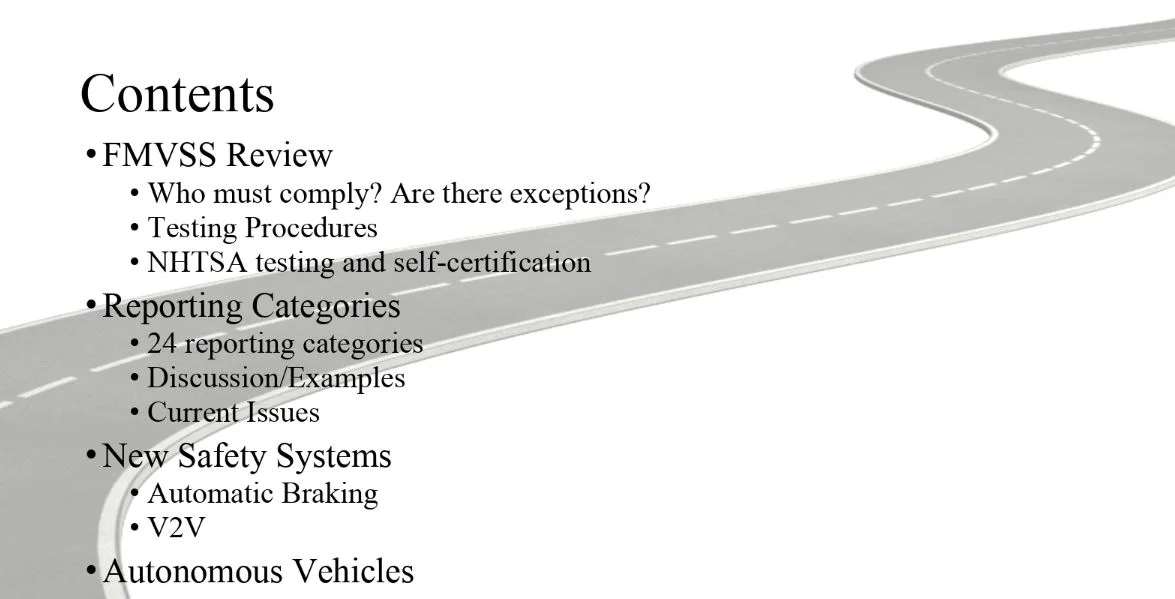Part 3: Training for Safety Compliance
With over 60 unique Federal Motor Vehicle Safety Standards (FMVSS), understanding safety compliance in the United States can seem like a daunting task. The United States utilizes a “self-certification” process (49 U.S.C. 30115), which imposes responsibility on the fabricating manufacturer to certify the vehicle or equipment as compliant with the applicable FMVSS. In addition to FMVSS, there are other standards and recommended practices that may be applicable to your product(s). Whether you are a complete vehicle manufacturer, supplier, dealer or law firm, we can assist in helping you and your team understand safety compliance and regulations in the United States.
What We Can Do
On-Site Training: We make the training process simple by coming straight to you and conducting our training sessions in-house. That way you can still interact with us during training, but have the ability quickly get back to your daily tasks.
Virtual Training: This method is highly suggested for professional organizations looking to reach out a variety of interested clientele around the globe.
Audit Current or Create New Safety Training: Have you been providing the same level of training to your employees for over 10 years? Or perhaps you are a startup that has not even entertained the idea of training? Regardless of where you are in the process, we can review and assess the training needs of your vehicle safety team.
Who Can Benefit?
Anyone looking to learn more about automotive safety compliance.
Work Examples
U.S. Safety Compliance Seminars: We provided U.S. regulatory compliance training to automobile manufacturer Geely, which owns Volvo cars in Sweden. This two-day training reviewed the Code of Federal Regulations as they relate to defects and noncompliance, FMVSS, TREAD and EWR compliance, new technologies, the EPA/CAFE standards, and product liability.
Automotive Supplier Product Liability Seminar: We provided a 30-minute seminar on how laws applicable to suppliers may affect their product liability to the members of the American Bar Association. The presentation reviewed current supplier requirements, potential penalties for noncompliance, supplier case studies and an overview of what meeting compliance of a full vehicle manufacturer may look like if applied to a supplier.

